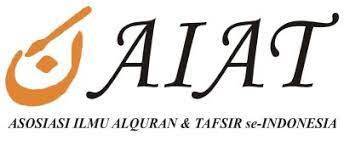Sufi Orders Authorization In Ibnu 'Ajibah Interpretation of The Qur'an
DOI:
https://doi.org/10.58194/alaqwam.v4i1.2616Keywords:
Sufi Exegesis, Ibnu ‘Ajibah, Sufi Orders, Spiritual AuthorityAbstract
This study examines the sufi exegesis of Ibnu ‘Ajibah (1747–1809 CE) within the framework of institutionalized sufi orders (tariqah), positioning his work, al-Bahr al-Madid fi Tafsir al-Qur’an al-Majid, as a culmination of the mature sufi interpretative tradition. By applying Gadamer’s hermeneutic theory, the authors analyze how Ibnu ‘Ajibah’s socio-historical context marked by Morocco’s political instability and the ascendancy of the Syazily-Darqawi Sufi order shaped his integration of esoteric (batin) and exoteric (zahir) Qur’anic meanings. The research highlights two core dimensions of his exegesis: (1) the authority of the spiritual leader (mursyid) as an indispensable guide for disciples, rooted in Qur’anic verses such as QS al-Ma’idah/5: 35 and QS al-Nahl/16: 43, and (2) the institutionalized disciple-master relationship, legitimized through rituals like the oath of allegiance (bai’ah) and modeled on prophetic covenants (e.g., QS al-Fath/48: 10). The study argues that Ibnu ‘Ajibah’s tafsir transcends earlier Sufi traditions by systematically embedding the hierarchical structures of the Tariqah into Qur’anic interpretation by situating Ibnu ‘Ajibah’s work within the socio-religious dynamics of his era, this research underscores the role of institutionalized Sufism in redefining Qur’anic exegesis, offering fresh insights into the interplay between spiritual authority, textual hermeneutics, and Sufi institutionalization in the late pre-modern Islamic world.
Downloads
Published
How to Cite
Issue
Section
License
Copyright (c) 2025 Moh. Azwar Hairul, Basri, Isnayanti; Muhammad Reissyaf

This work is licensed under a Creative Commons Attribution-ShareAlike 4.0 International License.









